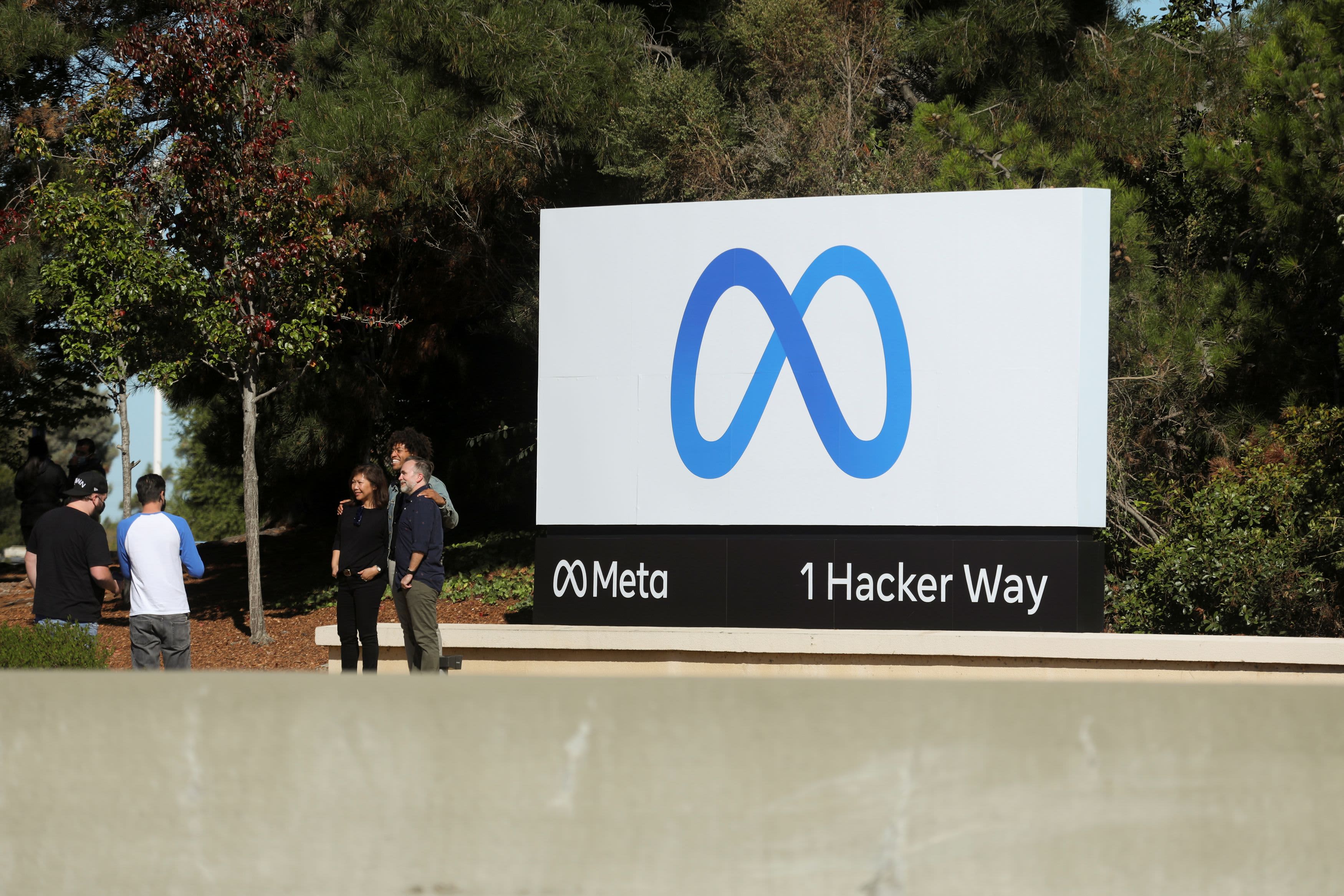
People pose for a photo in front of a sign of Meta, the new name for the company formerly known as Facebook, at its headquarters in Menlo Park, California, October 28, 2021.
Nathan Frandino | Reuters
The tepid trade for U.S. tech behemoths in the last couple of months is a “sign of things to come” in 2022, according to David Neuhauser, chief investment officer at U.S. hedge fund Livermore Partners.
With inflation running extremely hot and central banks under pressure to tighten monetary policy, along with the emergence of the omicron Covid-19 variant in recent weeks, global stock markets face a unique confluence of uncertainties.
The U.S. Labor Department will release November’s consumer price index reading on Friday, which is expected to show annual inflation notching an almost 40-year high. Neuhauser believes this upward trend in prices is going to continue as new Covid variants emerge and supply chain bottlenecks persist.
“I think it is going to still run above trend and our viewpoint still is that you want to own hard assets, and shift away from the growthier areas of the market, like technology,” Neuhauser told CNBC’s “Squawk Box Europe” on Friday.
Neuhauser highlighted that economic growth remains below trend if the unprecedented uplift from fiscal and monetary stimulus is discounted, while the flattening of the yield curve has led inventors to flock to high growth stocks like the Big Tech names earlier in the year.
The yield curve shows the relationship between short-term and long-term interest rates of U.S. Treasury notes. Usually, the longer the duration, the higher the interest rate, but when the rates draw closer to one another, the yield curve flattens. An inversion of the curve is typically seen as a warning signal for the market.
“I think that tends to see more investors dive into the growthier assets because they believe that in a low growth world, you want to own higher growth assets that keep up with inflation, or obviously outperform inflation. I think this time is going to be a bit different,” Neuhauser said.
The Federal Reserve has propped up markets since the onset of the pandemic with its ultra-loose monetary policy stance, but Chair Jerome Powell and other policymakers have shifted to a more hawkish tone in recent weeks in the face of persistently high inflation.
‘Reining in valuations’
Neuhauser argued that while the standard approach for investors on previous stock market pullbacks has been to “buy the dip,” the increased risk of a policy error in 2022 jeopardizes positions in traditional growth names.
“Things like ARK Invest (Cathie Wood’s ARK Innovation ETF) or Tesla or even Meta, formerly Facebook, those stocks lately have been underperforming and I think that could be a telltale sign of things to come,” he said.
ARK is down 11.6% for the quarter and 21.5% for the year, whereas Tesla has tailed off since the beginning of November, and is down 7.5% this week, but remains up 42% for the year. Meta is up almost 21% for the year but has dropped almost 13% in the three months to Friday.
U.S. jobless claims hit a 52-year low of 184,000 last week as companies continue to struggle for workers, indicating a further tightening of the labor market.
Neuhauser argued that the only tool the Fed has in order to address this, in conjunction with spiking inflation and negative trending real yields, is to raise rates.
“That would be bad for obviously any high growth names, technology especially. I think over the next several years, as you see tightening in terms of monetary policy, it could definitely have an effect in terms of reigning in tech valuations,” Neuhauser said.
“If you look underneath the current of the tech sector of the Nasdaq, which is having an explosive year, there are a number of companies that are trading below their 200-day moving averages, that are actually in a bear market, so it is a bit troubling and also fooling people a bit too.”




